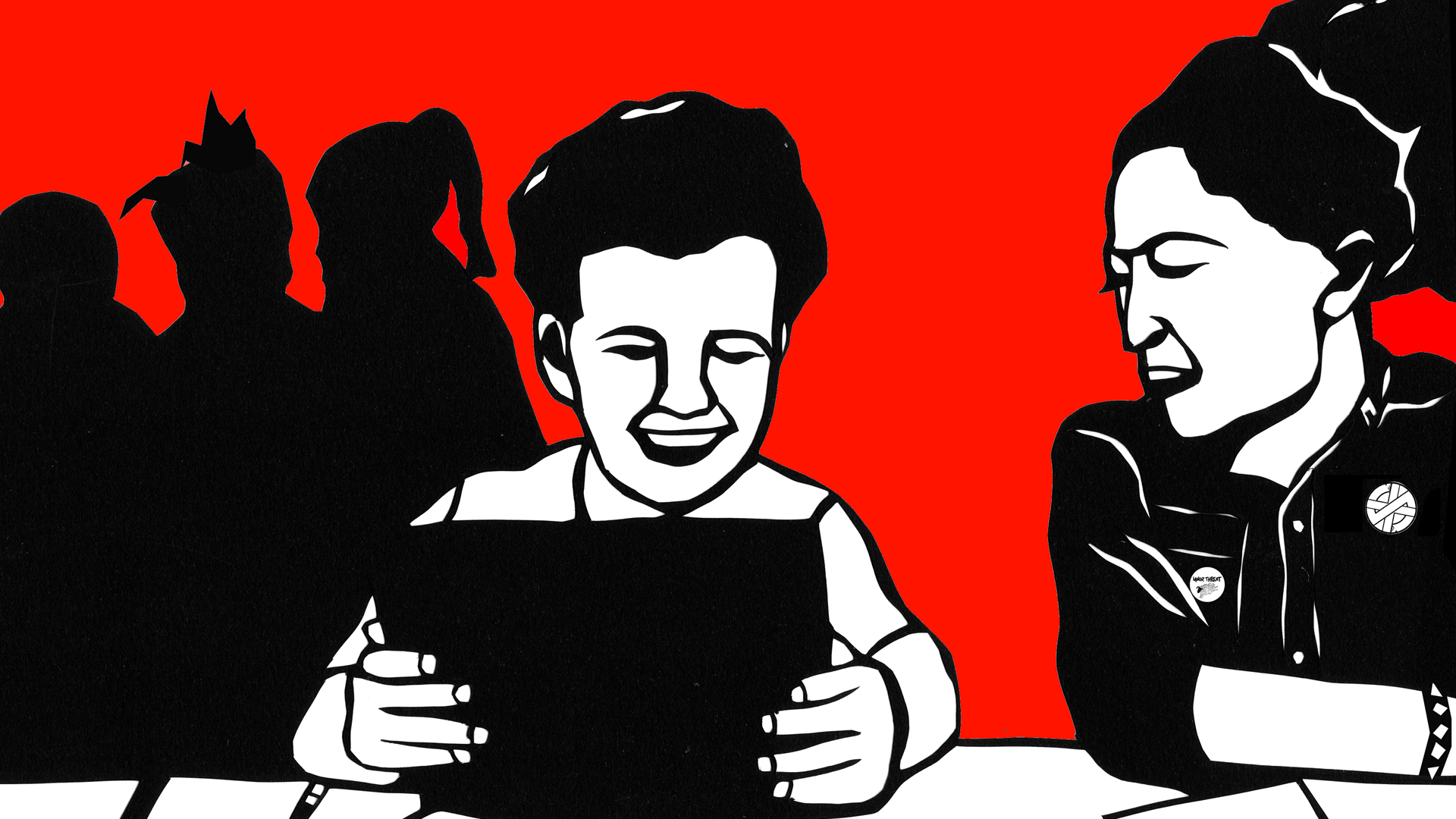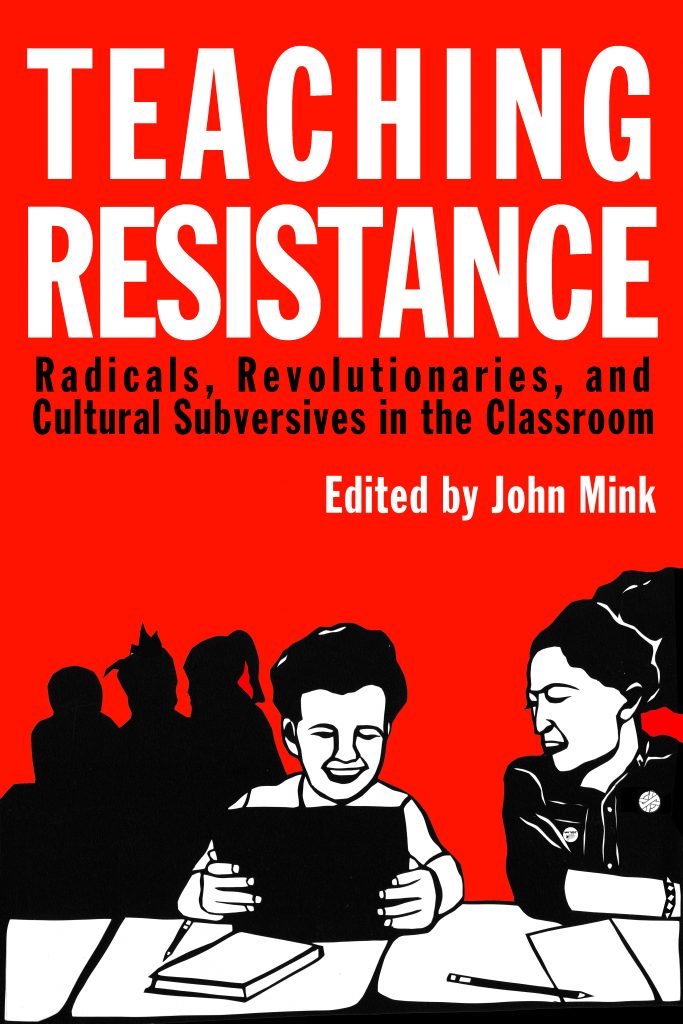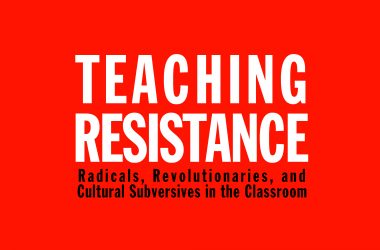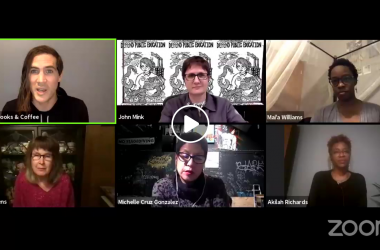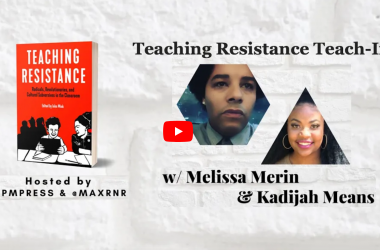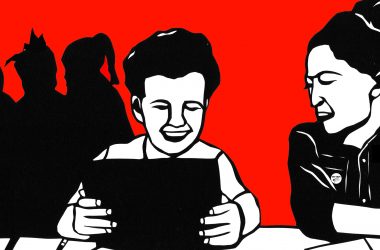By John No
Maximum RockNRoll
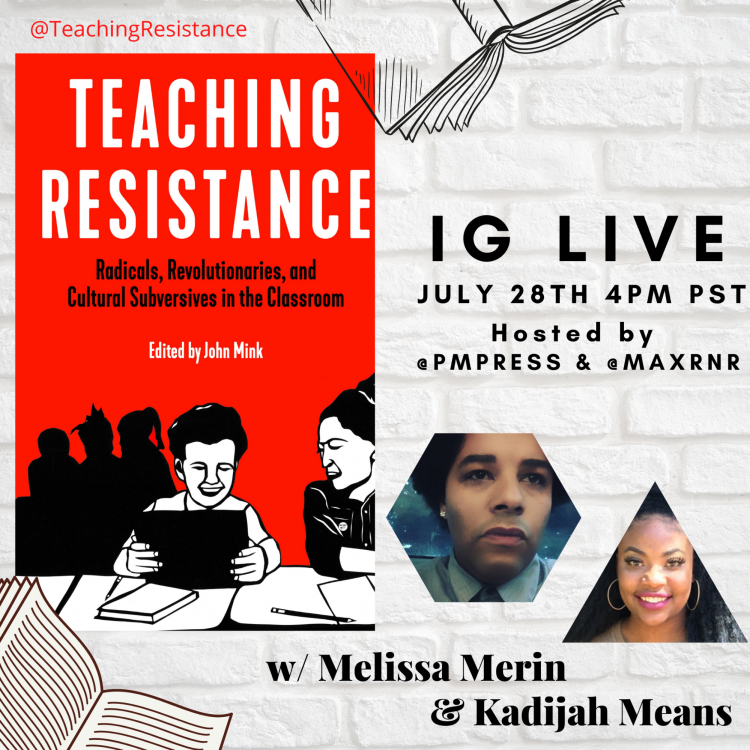
It is now midsummer, 2020, and the entire United States – where lives are precarious to begin with for huge numbers of people – started boiling over in the last few months. Due to the COVID-19 pandemic, so many have faced serious risks to or losses of physical health/jobs/housing security/mental and emotional stability/contact with loved ones/so much more. As is typical in the United States, these impacts have disproportionately devastated BIPOC communities, especially economically marginalized black, brown, and indigenous people.
Sparked by the public executions of George Floyd and Breonna Taylor at the hands of police, this powder keg combination of longstanding and immediate tensions exploded in a massive, essential nationwide uprising demanding true racial and social justice – a movement that has been met with an openly-fascist campaign of brutality from the state and their paramilitaries who have been waiting in the wings, armed and ready. The ever-simmering battleground of education has become a flashpoint again, as many teachers and students have participated in the struggle in ways big and small – and are rightfully questioning the role in the perpetuation of white supremacy that the institutions they work and study for have always had.
Part one of this month’s Teaching Resistance column is written by Josh Fernandez, a punk, a competitive runner, a pretty okay husband and father, a teacher of Writing in Northern California, a lover of community, and a highly decorated antifa terrorist.
Participating in this uprising over the last few weeks, day and night, amongst people who are putting their bodies, freedom, and mental health on the line for black liberation, I began to question the validity of my choices, especially about my profession.
For the past 5 years, I’ve been teaching English at Folsom Lake College, a small community college in Northern California in an affluent white community full of rabid republicans and holier-than-thou liberals whose contribution to the movement often arrives in the form of Elizabeth Warren bumper stickers and virtue signaling reply-all email threads.
Since institutions are now feeling the pressure to participate in conversations centered around blackness, I often wonder how sincere these conversations are and when they will pass. I also wonder whether higher education is as archaic as white supremacy itself.
Professors tend to think of themselves as “changemakers” and “keepers of knowledge and insight,” yet I have met so many instructors and staff in higher ed who are publicly “not racist,” but privately first-rate opportunists and cutthroat individualists. They become department chairs. They become deans. They are absorbed into the system where they solidify and dictate the norms of the institution.
Here’s a secret: We as professors don’t hold any special insight. We’re a bunch of bums and grifters. Sure, we know some stuff about our field, but all that knowledge is available for free now on the internet. All we have to offer is a path to a degree. No change. No knowledge and insight. We are useless cogs in a machine that controls our every tiny movement.
Our system relies on white supremacy, but we’re often blind to the institutions we’re a part of because they’re offering us something in exchange. In this case, my livelihood rests upon an institution that is firmly rooted in white supremacy.
When Paulo Freire outlined the importance of praxis (“reflection,” plus “action”) in an educational setting, I imagine him standing at a diversity and equity meeting in one of our tan conference rooms, under the flickering fluorescent lights, yelling, “The leaders do bear the responsibility for coordination and, at times, direction—but leaders who deny praxis to the oppressed thereby invalidate their own praxis.” And I imagine the administrators recoiling, taking mental notes about the best way to have him fired using gray areas of the contract language.
The denial of praxis is a handy tool often used by administrators that keeps anything meaningful from happening.
Last year, my district tried to fire me for helping the students start an antifascist/antiracist club. The club, part of the Campus Antifascist Networks (started by professors David Palumbo-Liu of Stanford and Bill Mullen of Purdue), was an outlet for students to voice their concerns about the conservative town’s racist underbelly and our school’s adherence to white supremacist structures. Our first meeting was a huge success. More than 50 students packed a room, all eager to share their experiences with racism and their ideas about how to combat it. A couple of weeks later I got a letter in the mail that informed me “the district is investigating issues related to the solicitation of Folsom Lake College students for potentially dangerous activities.”
They did everything they could to paint me as a violent antifa Mexican.
Through a lengthy and painful year-long process, I kept my job, but I gave up trying to change the system because it left me tired and dejected. At “diversity” meetings I now smile and nod and say the right things with the fog of a fiery revolution clouding my vision.
I leave my activism to outside of work, organizing on the streets, helping run the Sacramento Community Self-Defense Collective, a free, weekly workshop that’s aim is to keep the community safe, active, and healthy. Our group provides security for uprisings and we put our bodies in front of fascist threats in the name of human liberation.
Honestly, I don’t give a fuck about my institution, the day job that pays my bills. It has failed me and it has failed every student that has walked through its doors. We give students the impression that their worth is dependent upon walking a path of faith and integration into a society that will ultimately chew them up and spit them out.
One of my students said this about their experience at Folsom Lake College: “I say police on campus are a dangerous threat and my personal info is forwarded to the chief. I say we should have mandatory training on trans inclusion that I’ll host myself and I’m told it’s against policy. I say antifascism is an important perspective and I’m told I must desist in perpetuating violence. I say that administration is lying to my face about its actions and I’m given a conduct citation because I used a bad word.”
The district hinders our ability to organize and it hinders our ability to criticize. In the halls of our institution, praxis is impossible. Friere is trembling in his grave.
Last week I was helping with security at a protest and one of my students saw me and said, “Professor Fernandez, I knew I’d see you here.” We walked together for a minute, she paused, and said, “I always felt so safe in your class.”
That got me thinking that a feeling of safety for black and brown students is not in my job description. In fact, I was scolded and reprimanded for not tolerating a white supremacist, for making him feel left out. On my tenure evaluation, it says I need to attend a diversity and equity seminar “in an effort to improve in the following area: fostering a classroom and workplace environment that is free from harassment, prejudice or bias.”
That is white supremacy asserting itself, protecting itself through liberal respectability politics. It happens time and time again. Our district still utilizes a police force. We still allow military recruiters to hand out glossy pamphlets, depicting strapping young men jumping out of helicopters with weapons slung over their shoulders, luring our marginalized students to fight wars that aren’t ours to fight.
Our schools are rooted in white supremacy and the administrators have taken away our tools to fight it.
With this global pandemic that is burning up the district’s reserve fund like a wildfire on a windy afternoon, I don’t know what’s in our future, but I do know this: If our system of higher education sets itself ablaze, then I will cry genuine tears of sadness while I dance joyfully with my people upon its ashes. –Josh Fernandez
—————-
As the battle in the streets and over the soul of schools rages on, teachers are coming under enormous immediate pressure from the federal government (especially the Trump administration) to coerce us back into cramped classrooms this Fall with minimal or no safeguards to our health, our families’ health, the health of our students, and the health of their families. As would be expected, this is for workers to utilize the child care schools provide so they can, in turn, be coerced back into working in dangerous conditions – all because the government and capital do not want to provide economic support for workers in a time of crisis.
In the places where it ends up happening, reopening schools is going to backfire spectacularly when the case counts for COVID-19 shoot through the roof in affected communities – especially economically-distressed black and brown and indigenous communities – so many of the largest, most populous states (such as California) are strongly pushing back at it from the grassroots up, including through teachers’ unions (where those have not been outlawed or declawed).
Of course, one important reason these pushback efforts are gaining traction is that teachers can theoretically teach via remote, as we did this past spring. As planned school reopenings in many of the country’s largest districts (and states) get pushed back indefinitely in the face of obvious public health necessity, we now find ourselves (again) preparing to teach hundreds of students from our laptops at home.
Personally, while I am grateful for the continuity of income (for now-massive education budget cuts are coming) and the promise of some semblance of education for students, this is an extremely difficult situation for everyone involved – remote learning is the least bad of several terrible options. Inequitable access to technology and internet bandwidth, the loss of face-to-face learning, haphazard external structure, minimal peer interaction, and a million other things make this terrible for most students, particularly those who already struggle in school to begin with.
Awkwardly changing everything in our classrooms to somehow “work” for online learning is creating an avalanche of new work for teachers, and the often-uneven results exacerbate these unprecedented challenges in the future.
All that said, this is looking like how it will be for a while if we want to keep ourselves and our students safe, so we do what teachers have always done – we adapt, adapt, adapt. Lots of advice and new directives about remote learning are coming down from politicians, administrators, school boards, big private education industry companies like Pearson that want to sell more tech, random billionaires who want public schools to disappear entirely, etc. The best thing to do, of course, is to ignore all of these assholes and focus on who matters: Our students and other teachers, the two groups always guaranteed to have the best ideas that we can learn from.
Part II of this entry of Teaching Resistance was compiled and introduced back in early May by living legend and returning contributor (to both the column and Teaching Resistance book) Michelle Cruz Gonzales and her incredible Las Positas Community College students. A former pre-school teacher and author of “The Spitboy Rule: Tales of a Xicana in a Female Punk Band” Michelle writes a lot, still plays drums, and teaches English and creative writing.
—————-
Some semesters you get very lucky with a creative writing class, and fortunately, when my class found itself living and writing in the midst of a pandemic, this was one of those semesters.
My students, who range from the ages of eighteen to sixty-something, represent so many of the different communities in the Bay Area’s Tri-Valley and beyond. They are young, old, gay, straight, fluid, French, Korean, Chinese, Filipino American, Latinx, multi-racial, white, well off, and not so well off. I have students who ride horses, draw, play ukulele, students with autism and 4.0s, and students about to transfer to Cal State East Bay, and USC. Before our last face-to-face class on March 11, 2020, some in the class had never heard the word pandemic, or never given the word much thought. Those of us who are over forty (and there are at least six of us which is unusual where I teach) the word pandemic is a word that we associated with primitive eras, a time before vaccines and people who opposed them. One of my students is a retired lawyer and now the father of two adopted teenagers who he is suddenly homeschooling from their house in Livermore. Another student was a librarian in China, and another from Korea, a published poet with a degree in Korean literature. A couple of my students are actors who were in Las Positas College’s enviable theater-program play that was canceled mid-run.
To not write about how we went from living our lives outside the walls of our houses, apartments, bedrooms, backyards, or Zoom was not really a choice, so the WRITING ROOM was born.
Please, Dear Reader, open your shelter-in-place-mind and enter the fiction room and read Limei Xie’s fictionalized family scene of a family from China living in the United States, worrying about what the pandemic means for their children’s education, their job security, and their work visas. In the personal essay room, you’ll find Eric Funk’s moment of clarity about the Trump administration and its supporters, Matt Edwards longing for the beach, and find how sheltering alone gives Robert Hilton time to reflect on his deceased father. In poetry, you’ll find musings about gratitude, sanity, the power of nature, and one place you didn’t know could be missed: a college theater green room.
Our collection is a portal, a time capsule, the present, and the past. We may be sheltered in place but we cannot be contained. —Michelle Cruz Gonzales
The Teaching Resistance column is designed to provide a platform for radical, punk-affiliated, subversive teachers/educators to share their ideas and draw attention to important issues around education; particularly compulsory- and community-based education. If you are a teacher (anywhere in the world) for students of primary or secondary school ages (K-12), Community Colleges, or alternative learning arrangements such as collectivist free schools, and you want to submit an idea for a column, please write an email to [email protected]. —John No, Teaching Resistance editor

